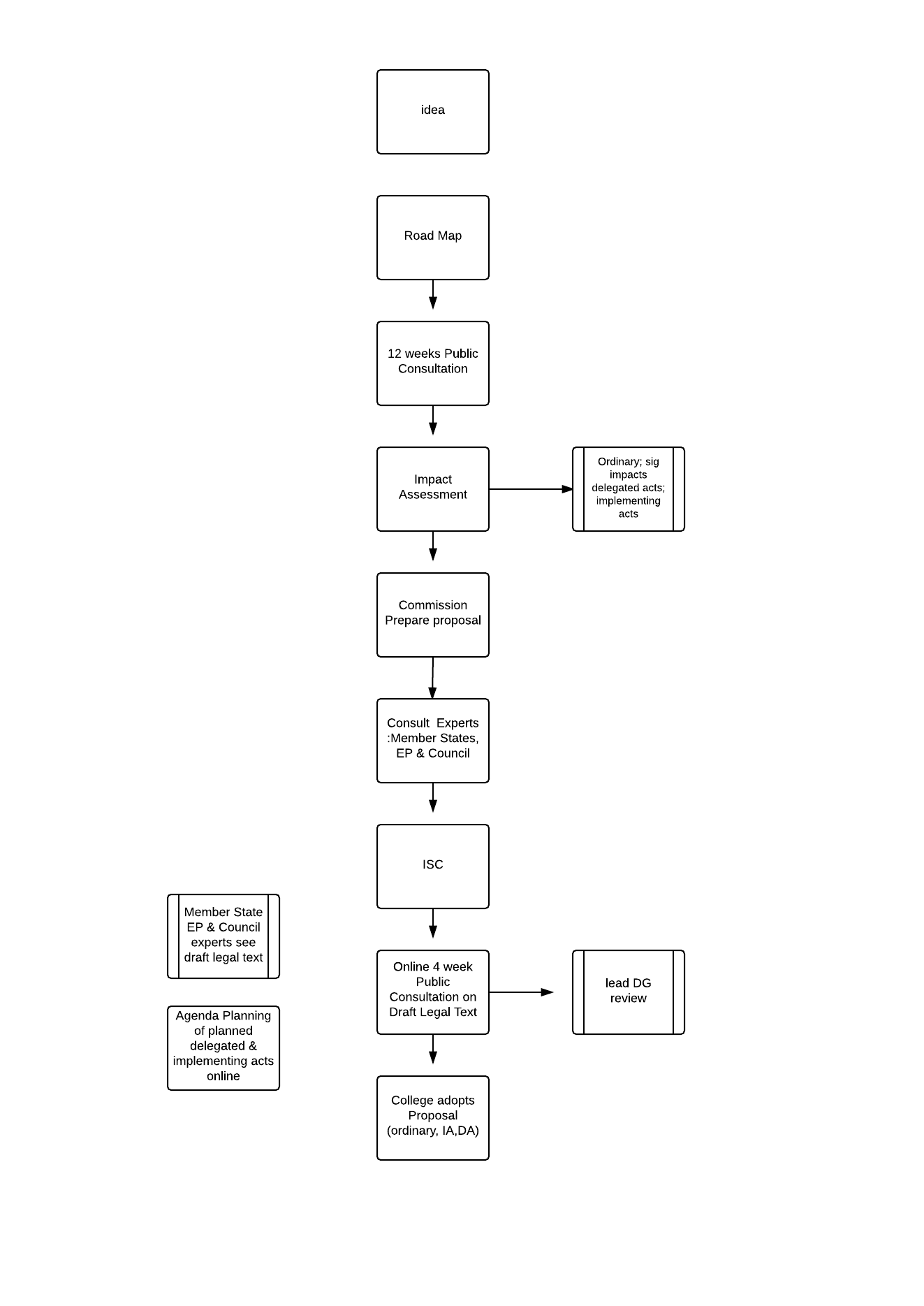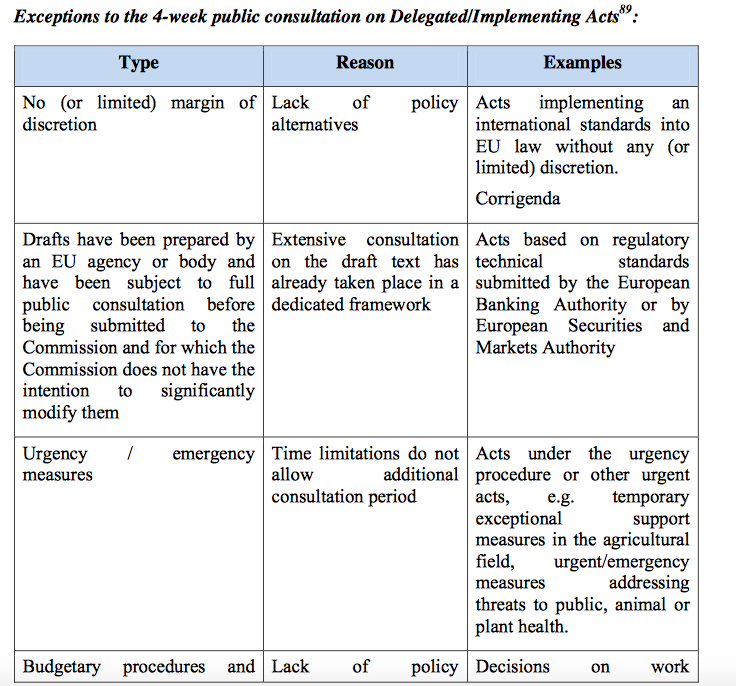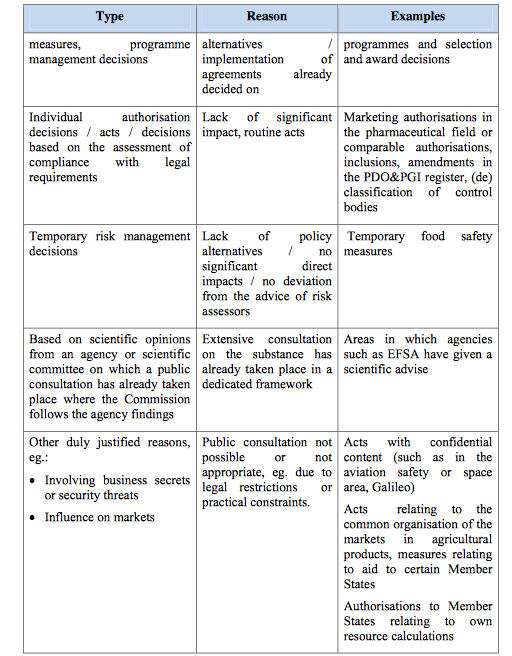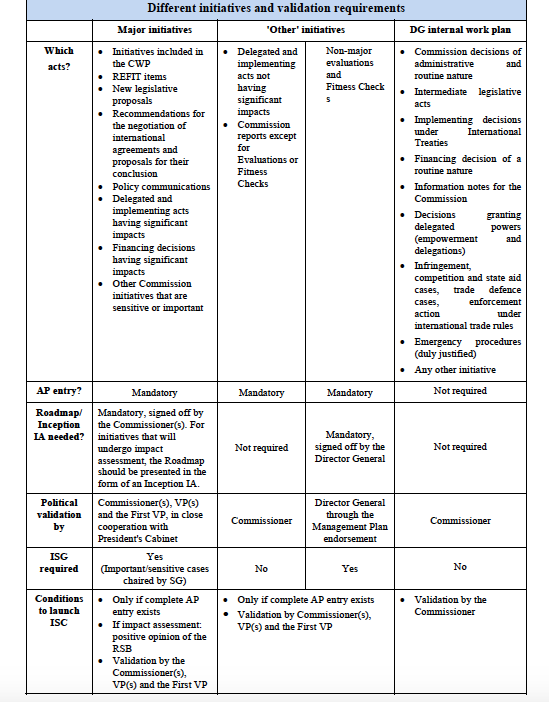The “Inter institutional Agreement Between the European Parliament, the Council of the European Union and the European Commission on Better Law-Making” was adopted on 13 April 2016. It is now in force and new Commission proposals should be following it. Below is the signing event in Strasbourg.
The Agreement will have an important impact across many areas of EU law making. I have reservations that Commission Services will follow the letter and the spirit transparency provisions of the Agreement, but I hope to be proven wrong.
One of the most important changes will be in the pre-Commission adoption area of Delegated Legislation, in particular on how delegated acts are adopted.
Here I consider what those changes will be by cross-reference to the Agreement and the Commission’s Guidelines and the Toolbox. When one of the Institutions publish a new process chart for this pre-approval stage for delegated legislation, I will post it. The Agreement needs to be read in tandem with Guidelines and Toolbox as the later are commitments the Commission have made on themselves, and so some operational mechanics fall outside the scope of the Agreement.
The Institutional Agreement deals with changes to Delegated and Implementing acts in Section V (para 28-31) and the Annex of the Agreement.
The main changes are:
- Member State experts, along with European Parliament and Council experts, will be involved in the early preparatory phases of developing a delegated act. This will happen by way of meetings.
- Member State experts, presumably along with European Parliament and Council experts, will also see the draft legal text of the Delegated Act, before it posted on a new web portal.
- A new web portal will be established where the public will get to see the draft legal text following the Inter-Service Consultation.
- Delegated acts will have their own stand alone register. But, for the meantime, implementing acts will for a while use the existing comitology web platform.
- Only delegated acts with a significant impact will be accompanied by an impact assessment.
I have tried to summarise this pre-adoption phase for delegated acts with significant impacts below. This is a work in progress, and all errors remain mine! As soon as I see something better, I’ll post it.
This chart can only be broadly correct. First, the fine print of how the new system will be work is being worked out, even the IT system to operate it needs to be set up. Second, there are always exceptions to the general rule, and in all likelihood a separate process chart for each the pre-proposal phase for significant and non-significant delegated acts and implementing acts should be prepared.
Stakeholder Feedback Built In – A Final Quality Check?
The introduction of feedback for draft delegated and implementing acts is arguably the most significant contribution to open law making from the Agreement. This will involve two components, first, the listing of Agenda Planning proposals being considered, and second, stakeholders will be given 4 weeks to provide feedback on the drafts.
These important provisions should come on stream around 1st July 2016.
There are exceptions to this general rule (see below pages 67-68 of the Guidelines).
Commission Adoption
Depending on the measure at stake, different internal Commission Procedures for sign off will be used. This checklist on page 14 of the Guidelines provides a helpful summary.
This is helpful to look at. Many initiatives for delegated legislation (delegated acts and implementing acts) are not internally flagged as having significant impacts, even when it is clear that they do. This can mean that many of the Commission’s screening controls can in practice be by-passed. This means that important proposals can land up on the desk for inter-service consultation and then adopted by the College of the Commissioners without any serious review, discussion and quality control.



